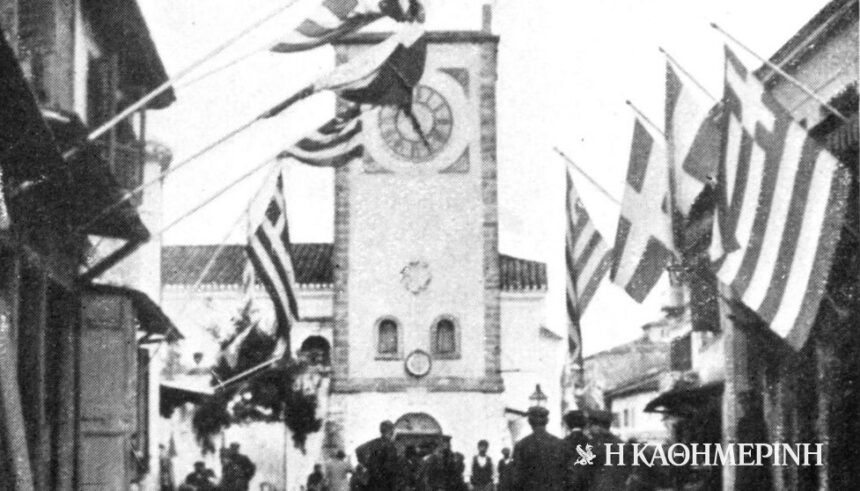In October 1912, with the expiration of the ultimatum sent by the Balkan Coalition to the Ottoman Empire, the First Balkan War officially began. Greece, with its naval power, managed to dominate the Aegean, and in this way contribute significantly to the struggle of all the allies against the Ottomans. Its contribution was also important on land, where it had at its disposal a force of 100,000 soldiers, 1,000 horsemen and 180 cannons. The aim of the Greek forces operating on land was primarily to liberate as many areas as possible in Epirus and Macedonia. With the battle of Sarantaporos (October 9-10) Katerini and Kozani had been liberated, while with the battle of Giannitsa (October 19-20) the latter would pass into Greek hands, thus opening the way to Thessaloniki.
In Epirus, until October 20, a part of the Greek army had crossed the Arachthos, while afterwards it occupied Philippiada, the bridge of Pantanassa and Strevina without a fight. This march had the effect of cutting off the communication of the part of the Ottoman army that was in Preveza with the parts of the rest of Epirus, thus giving the Greeks the opportunity to move there. Indeed, on the morning of October 20, the Greek army launched an artillery and shelling attack against the Ottomans, who had fortified themselves in trenches outside the ancient city of Nicopolis, and had formed their line of defense at that point. . At the same time, it had the support of a torpedo boat as well as two steamers, which were in the bay of Preveza.
The Ottoman army in ancient Nikopolis, despite the fact that it defended itself vigorously, was finally forced to abandon its position and, after being pursued by a section of Cretan and Epirus volunteers, fighting on the side of the Army of Epirus, was forced to retreat towards Preveza. In reality, however, he was led to a city which was surrounded by the Greek army and fleet, as at the same time, on the same day, the Greek Ionian fleet would bombard its fortress.
Even in these conditions, however, the Ottoman commander of Preveza, Mehmet Assaf, did not wish to surrender. However, this would soon change as the situation in the city with the Greek artillery firing on the fortress would result in the intervention of the British, Austrian and Russian consuls. The latter asked the Ottoman side to hand over the city unscathed. After this meeting with the European consuls, the Ottoman commander finally accepted their proposal and transferred the terms of surrender of the city to the Greek side.
The handover protocol was signed in the early hours of the 21sther October between the Greek colonel Panagiotis Spiliadis, Mehmet Assaf’s representative and the three consuls. Finally, after accepting the terms of delivery, at 14:00 noon on the 21sther In October 1912, the Greek army would officially enter Preveza.
Column Editor: Myrto Katsigera, Vassilis Minakakis, Antigone-Despina Poimenidou, Athanasios Syroplakis




